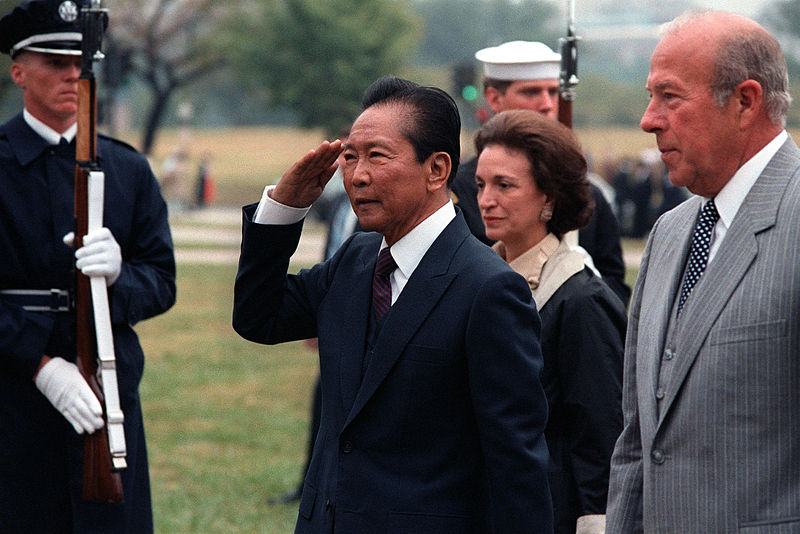
March 17, 2016, by Editor
Marcos and Duterte: Authoritarian Nostalgia in the Philippines
Written by Jeremiah Reyes.
Our country is said to be in the midst of ‘authoritarian nostalgia.’ According to a study of six countries in Asia, the Philippines exhibits growing yearning for strongman rule and sympathy for a military intervention in government. Among the countries studied, the Philippines rejects authoritarian rule the least. The study used statistical analysis of the first and second rounds of the Asian Barometer Survey and was authored by Yu-tzung Chang, Yunhan Zhu, Chong-min Pak and. The Journal of Democracy published their findings in 2007.
I am not surprised by these findings. This election has yielded a colorful variety of personalities vying for the highest posts of the land. Despite the myriad assortment of interesting personalities, two have caught my attention, and for very exacting reasons. I refer to Bongbong Marcos, currently a Senator and running for the position of Vice President, and Rodrigo Duterte, Davao City mayor and a ‘presidentiable.’ These two people have stood out from among the rest because of the kind of government these two have come to represent. I refer to it as an authoritarian form of government.
Bongbong Marcos, as many should know, is the son of our former dictator, Ferdinand Marcos himself. Marcos (the father) has become synonymous to ‘Martial Law’ and authoritarianism, the regime that puts the people’s freedom on hold by the will of those in power. The authoritarian character of his administration was said to instill and inspire discipline among Filipinos by way of curfews and heightened law enforcement. Many people lauded this approach, both then and now, despite the dictator’s ouster 30 years ago.
I constantly come across individuals who look back to the time of Martial Law as a time of discipline, order, and security. Except, of course, when you have been accused of a crime, then you will be surely put away whether that charge is true or not. It was worse when you were branded an enemy of the state, for very horrible things will be done to you.
Despite knowing all these, those people fortunate enough to have avoided being victims of the state, remember the authoritarian regime with a sort of longing for the days when the Philippines was ‘safe,’ ‘secure’, and ‘rich.’ People seem perfectly fine that the son of that regime’s mastermind is running for the second highest post in the land. And what’s worse, Bongbong continues to deny all these, stirring fears that he may end up going down the road of his father.
Then we have Rodrigo Duterte, who is very proud of how his city is supposedly one of the ‘safest’ in the world. He and his supporters never deny why and how Davao City came to be known as such.
When the media got wind of his ‘presidentiability’, various pieces have gone out outlining the very tough measures he has in place in Davao and his take on criminals. The story goes that he forced a tourist to eat a cigarette butt for violating the city’s non-smoking ordinance—or else, Duterte will shoot his crotch.
He would always publicly state his intent to have criminals killed on a regular basis to rid of criminality. He said he would hold public executions every week. All this sounds so very much like an authoritarian regime. And people adore that as if we hadn’t gone through something similar just a little over thirty years ago.
The people who support Duterte and Marcos keep mentioning how the Filipinos have grown stubborn and undisciplined and that these types of politicians must be in power to crack the whip and wield the chains. I don’t exactly know why, but they have seem to have forgotten the horrors the country had been through when we had that kind of leadership. Maybe they choose to keep a blind eye.
Either way, the fact that these two characters are out onstage, and that people applaud their performance, is unsettling indeed, and I look forward to the end of this act with much apprehension.
Jeremiah Reyes is a third year student taking Political Science in UP Diliman. This article was first published on the University of the Philippines Halalan 2016 blog and can be found here. Image credit: Wikipedia Commons.

As long as Duterte does not ban video games, or as long as the US and Australia and the Philippines will not be enemies. I am fine.